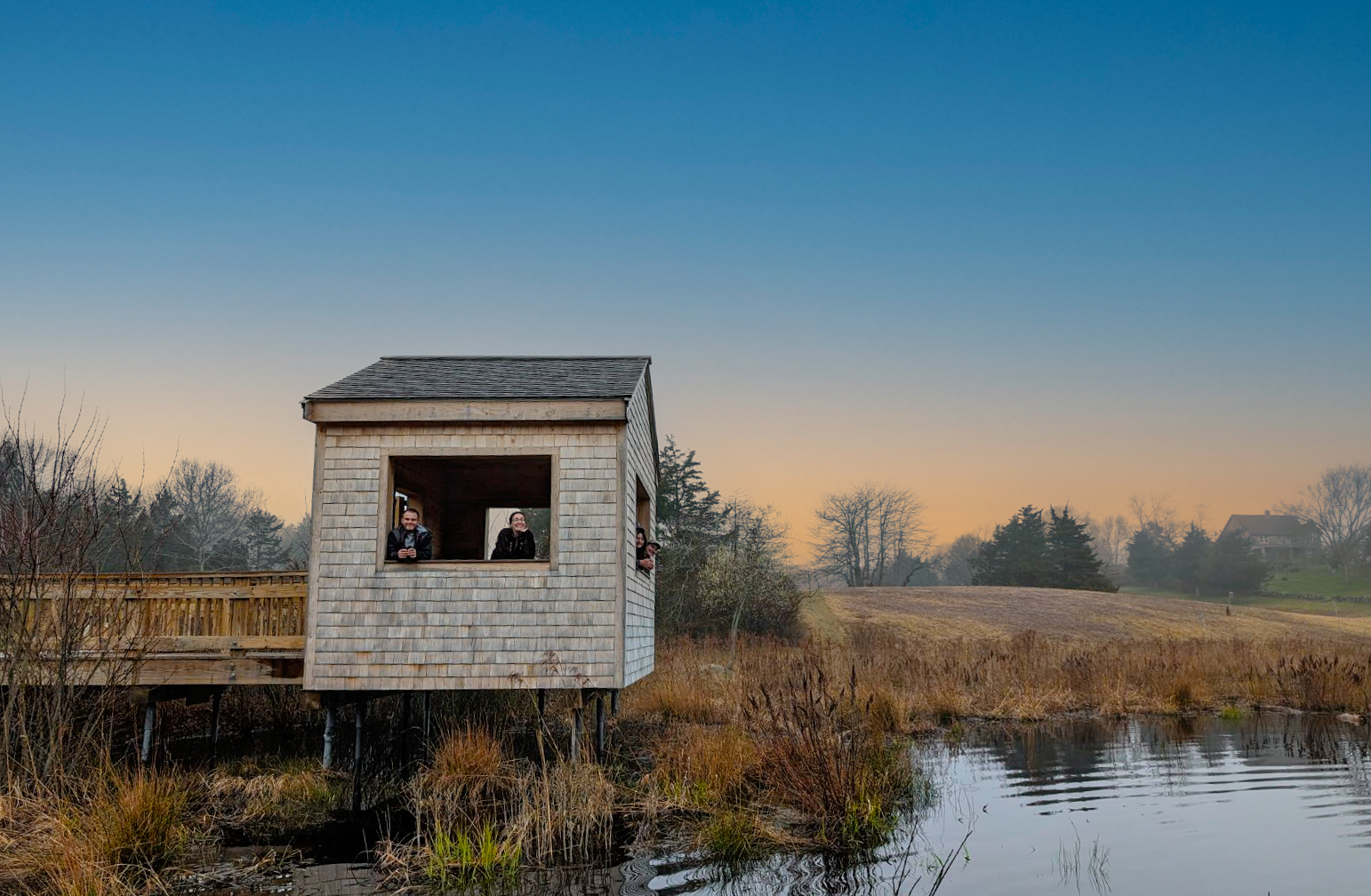The cranberry bogs at the Manomet Center’s headquarters property are being restored and the farmers are holding a “planting party” this month to roll out a new climate change-resistant cranberry vine.
Farmers Jen Friedrich and Hannah Whipple have been implementing new technologies and systems to make the Manomet Center’s Holmes Farm more sustainable.
These new changes are most visible in the renovation of the cranberry bogs, which is being completed organically.
“Over time cranberry bogs begin to yield less and less, and become out of grade, meaning that the bog surface becomes uneven,” Friedrich said. Upkeep and maintenance requires an even flooding, but an uneven surface makes this increasingly more difficult. It can also lead to pest and weed problems.
The process of renovating the bogs begins by stripping off all of the existing material and replacing it with six to eight inches of sand, which is then leveled. The farmers will be planting a new type of cranberries in an open planting party on June 23th and 24th. Drop-in hours are from 9 to 5 on both days and a farm lunch will be served to all those who volunteer to help.
The berries are called the Scarlet Knight Vine, after the mascot of Rutgers University where they were created. The new vines have been bred to adapt to the warming climate and as a result have an earlier color, meaning that they will ripen sooner. This will give the berries a better chance of being harvested before increasingly unpredictable weather can cause damage.
The farm has also been utilizing another form of sustainable agriculture in the construction of two high tunnels. Though similar to greenhouses in appearance, high tunnels are in fact unheated structures, covering plants that grow in the ground beneath.
According Friedrich, the new cranberries and the high tunnels are “helping to extend the season at both ends, this makes the farm more viable.”
The farm has also been taking several steps toward improving the efficiency of its water usage. The installation of pop up heads in the new bogs will help to reduce maintenance and are part of a new automated watering system. This solar-powered sprinkler system measures the moisture levels of the soil and has a timing system that is designed to use the smallest amount of water necessary, which will also help protect the crops from frost.
New flumes, devices which allow the farmers to control water flow, have also been installed and work with a recovery pond that captures “tailwater” – or water that has already been used on the bog and is being recycled.
Constance de Brun, Manomet’s vice president for Finance and Operations, praised the farm’s progress.
“This is the only full-scale organic cranberry bog renovation project that we know of,” de Brun said. “We are bringing science and conservation together in a unique and very real way.”
– Emma Riedel





 Back to all
Back to all